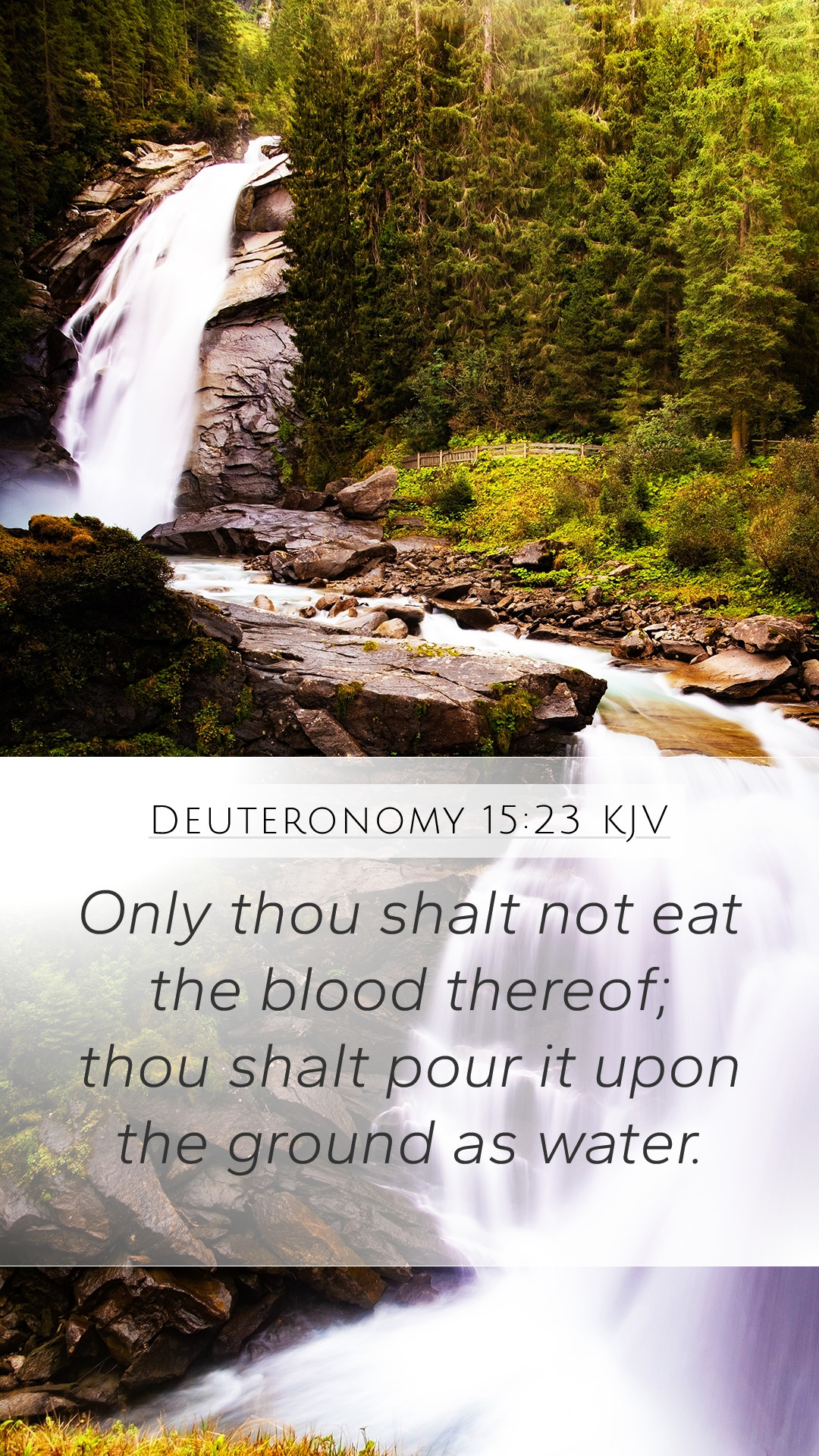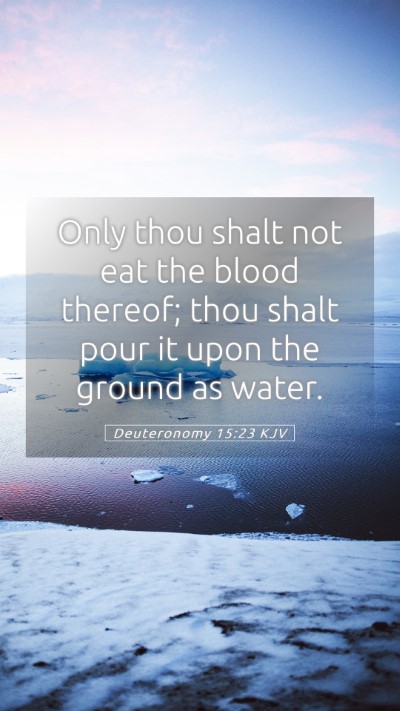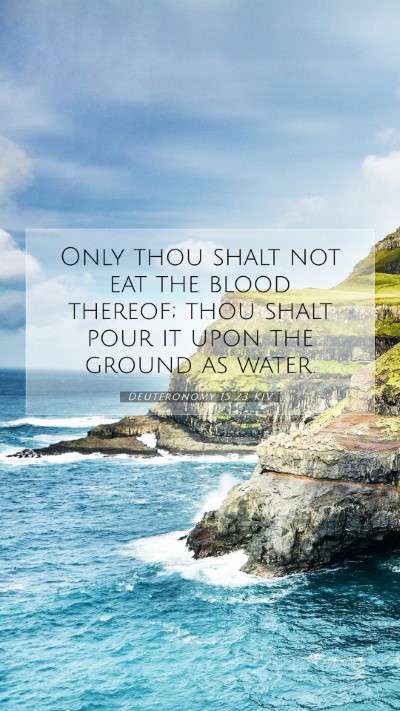Deuteronomy 15:23 - Understanding the Bible Verse
Deuteronomy 15:23 states: "Only you shall not eat its blood; you shall pour it on the ground like water." This verse, embedded within the context of sacrificial practices, reveals profound teachings regarding the sanctity of blood in biblical traditions. The interpretations derived from various public domain commentaries shed light on the significance and application of this commandment.
Overview of Deuteronomy 15
Deuteronomy consists of a series of speeches by Moses, where he reiterates the laws given to the Israelites and reflects upon their covenant relationship with God. Chapter 15 focuses specifically on laws concerning the sabbatical year, forgiveness of debts, and regulations related to sacrificial offerings. The command regarding the blood is one of great importance, symbolizing life and the sacredness assigned to it.
Commentary Insights
-
Matthew Henry:
Henry emphasizes the significance of abstaining from the consumption of blood, as it represents life, which is ultimately God's domain. He interprets this commandment as part of God's broader laws that teach Israel how to be a holy people, separated from pagan practices, where blood consumption was more common.
-
Albert Barnes:
Barnes provides detailed commentary on the holiness of blood in the Israelite sacrificial system. He underscores that the spilling of blood must be treated with utmost respect and care, reflecting the seriousness of sin and atonement. The act of pouring blood on the ground, akin to the symbolic gesture of returning it to the earth, serves to illustrate its natural and sacred cycle.
-
Adam Clarke:
Clarke explores the cultural context of blood in ancient Israel, noting that it was often associated with life and divine presence. He argues that this regulation was intended not only to separate the Israelites from surrounding nations but also to instill a deep reverence for life and the act of sacrifice. Clarke also discusses how disregarding this aspect could lead to dire moral consequences.
Theological Implications
This verse has broader implications for understanding the sacrificial system intrinsic to Old Testament worship. Blood is a recurring theme that aligns with the covenantal relationship between God and His people. It presents an important theological principle: the acknowledgment of life as sacred, which forms the basis for morality and ethical behavior in the community of believers.
Cross References
- Leviticus 17:10-14 - Prohibition against eating blood.
- Hebrews 9:22 - Discussion on the necessity of blood for forgiveness.
- Genesis 9:4 - God’s command regarding blood after the Flood.
Practical Application
Understanding this verse assists believers in comprehending the deeper layers of Scripture and its implications for both worship and daily living. It encourages the practice of reflecting on the sacredness of life and the purity required in approaching God. Morally and spiritually, the command invites believers today to cultivate respect for life and comprehend the gravity of blood as a symbol of covenant and redemption.
Conclusion
As we seek to gain deeper bible verse understanding and bible verse explanations, reflecting on Deuteronomy 15:23 through these commentaries enhances our grasp of Scriptural teachings. For those delving into Bible study groups or online Bible study, this verse serves as an excellent example of how Old Testament laws can enrich our understanding of God’s holiness and the significance of our worship practices.


